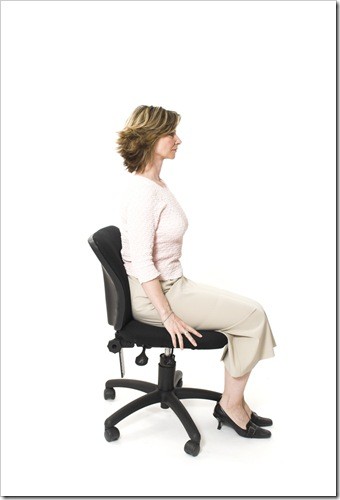
Few people understand the true importance of maintaining good posture. Despite our hearing about it on a pretty regular basis, why it matters and how to achieve it remain a little murky for many.
Why good posture matters
Good posture is more than standing up straight. You have posture when you stand, walk, sit, kneel, lie down, play sport, etc. Whatever position your body gets into, there is a right way and a wrong way of doing it. The right way reduces strain on the supporting muscles and ligaments. The wrong way hurts. Good posture does the following for you:
- Keeps your bones and joints correctly aligned so your muscles work correctly and your joints experience the least possible wear and tear, reducing the risk of degenerative arthritis and joint pain.
- Reduces the stress on the ligaments that hold your spinal joints together, making injury less likely.
- Allows your muscles to function with less effort, so you get less tired and stressed.
- Lowers the risk of muscle strain and overuse disorders that can cause back and muscular pain.
Common risk factors for bad posture include: obesity, stress, pregnancy, weak postural muscles, unusually tight muscles, high-heels, lack of flexibility, poor work ergonomics, and bad habits when sitting and standing.
Sitting properly
- Your feet should rest on the floor. If they don’t, use a stool.
- Crossing your legs is not advised, and keep your ankles in front of your knees.
- Check there’s a small gap between the front of your seat and the back of your knees.
- Keep your knees at or below the level of your hips.
- Support your low- and mid-back, either with a backrest or back support.
- Don’t tense the shoulders, and check your forearms are horizontal.
- Get up and move about regularly when stuck sitting down for long periods.
Standing properly
- The balls of your feet should bear most of your weight.
- Don’t lock your knees; keep them slightly bent.
- Feet should be shoulder-width apart.
- Let your arms hang free at your sides.
- Stand straight and tall with shoulders pulled backward.
- Keep your stomach tucked in.
- Your head should be level, earlobes over your shoulders. Don’t force your head in any direction.
- When unavoidably on your feet for a while, shift your weight from your toes to your heels, or from one foot to the other, to share the burden.
Lying properly
- A suitable mattress is very important. Make sure you find one that is supportive and comfortable. This is a personal matter based on your own shape.
- Use a pillow to maintain your spine in proper alignment.
- Don’t sleep on your stomach.
- Sleeping on your side is less stressful on your spine than sleeping on your back.
- Place a pillow between your legs if you sleep on your side.
- Place a pillow under your knees if you sleep on your back.
Your doctor of chiropractic is there to help you achieve and maintain proper posture, and can help you to strengthen your core postural muscles with specific exercises. Sport-specific postural advice is also offered to help minimize the risk of injury.
For Your Health,
Dr. Mark Hardwick and Dr. Mitchell Jacobs
